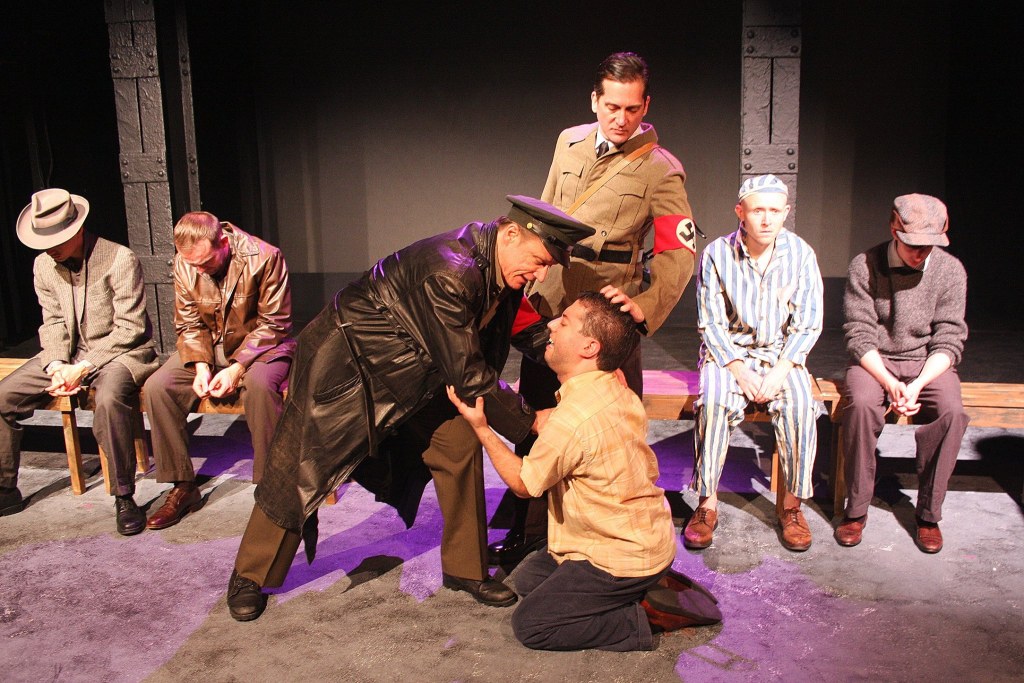
This tragic yet beautiful photo was found on the Zeitgeist Facebook page. No photo credit was found.
Presented by Zeitgeist Stage Company
By Martin Sherman
Directed by David Miller
Boston Center for the Arts
September 19th – October 11th, 2014
Zeitgeist on Facebook
Review by Craig Idlebrook
(Boston, MA) Terror comes when you slowly realize that you have run out of ways to escape a horrible situation. It can first comes in drips, and then all at once. Homosexuals in Nazi Germany first lived on the knife’s edge in a non-sanctioned world of winks and nods. In the play Bent, they succumb to terror in one fell swoop, but then realize that perhaps the most terrifying thing of all is when one can’t find the bottom of a nightmare. Then, all that one can do is accept what is happening and find ways to regain shreds of dignity.
Martin Sherman’s script is an exquisitely constructed noose, first using a sitcom-like cadence to draw us in, and then using a reporter’s tone to let the facts of the Holocaust, and the power of the human spirit to speak for themselves. Unfortunately, director David Miller doesn’t pick up on the sublime restraint of the script, and he forces the issue by calling on maximum emotion from his actors right from the beginning. This works best in the beginning of the play, when a doomed couple, Max (Victor L. Shopov) and Rudi (Mikey di Loreto), bicker good-naturedly about how a naked Nazi wound up in their bedroom. Shopov is always wired on stage, every statement an exclamation, and di Loreto matches him in infusing Rudi with frightful vacillation, even when handling a teacup. The problem is that this red-line emotional display leaves the actors with nowhere to go when they try unsuccessfully to flee from the Holocaust. Emotion becomes baroque.
This is unfortunate because there are members of the cast who take a more subtle road with great success. A standout in the cast is Brooks Reeves, who plays Horst, a gay man that Max encounters on the train to the concentration camps. When called upon in other productions, Reeves is the most frantic and high-energy actor I’ve seen on the Boston stage, to great effect. In this play, he bottles that energy inside, and can convey so much more emotion with a look then Shopov can with pacing. The effect of watching Reeves work in this production is similar to watching Robin Williams play it straight in his best roles. His performance is evidence that this production would have fared better had Miller chosen more often to hold his actors back, and let the powerful story carry the weight.
